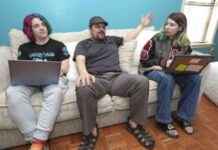Some 8 million Ivorians are called to the polls this Saturday, September 2 to vote in the municipal and regional elections, a local ballot which should make it possible to establish the balance of power between the political parties, two years from the next presidential election.
“The three main political parties of Côte d’Ivoire are participating in this election. It is obvious that the results will make it possible to judge the real political weight of each of them and to see the cartography of their establishment on the national territory, ”explains political analyst Geoffroy Kouao to AFP. “It will allow to see their strengths and weaknesses before the presidential battle of 2025,” he continues.
The ballot will notably make it possible to identify the executives of power who could position themselves for the presidential election.
Current President Alassane Ouattara, 81, has still not settled the question of a possible candidacy for a fourth term, and the list of his potential successors is growing. “Those who want to look higher must have the anointing of the people, of their base. It will be double or quits for several “personalities of the majority in the running on Saturday, said political analyst Arthur Banga.
Facing the powerful ruling party, the Rally of Houphouëtists for Democracy and Peace (RHDP), the opposition is advancing in close ranks to try to win a majority of the 201 municipalities and 31 regions at stake on Saturday.
In many localities, the candidates of the African People’s Party – Côte d’Ivoire (PPA-CI), the formation of ex-president Laurent Gbagbo, have allied themselves with the other major opposition party, the Democratic Party of Côte d’Ivoire (PDCI), orphan of Henri Konan Bédié, another former head of state (1993-1999) who died on August 1.
No call for boycott
These are the first elections since the return of Laurent Gbagbo to the country in June 2021. The former president (2000-2011), acquitted by international justice for crimes against humanity during the post-election crisis in 2011, however, will not be able to vote on Saturday.
He remains removed from the electoral lists because of a conviction in Côte d’Ivoire, for facts related to this crisis. But if he challenges this decision, there is no question that his party will boycott the election, as has been the case in the past. “Never again will we miss the election!” he launched at the end of August.
Saturday’s vote will therefore allow his political party launched less than two years ago to assess the support it enjoys in the country. “It will give an idea of ??the mobilization capacity of their base. If the results are starving, it may affect the morale of the troops, “warns Arthur Banga.
Despite these alliances, the ruling RHDP is the favorite in the ballot: in 2018, it won 18 regions (out of 31) and 92 municipalities (out of 197).
About twenty ministers are candidates, most in regions or municipalities that are a priori comfortable, especially in the north traditionally committed to the cause of the RHDP.
But some “matches” promise to be tight, starting with the town of Yopougon, the largest in Abidjan with its 1.5 million inhabitants, a historic stronghold of Laurent Gbagbo.
The President of the National Assembly, Adama Bictogo, will defend the colors of the presidential party there, in the face of an opposition for once disunited since Michel Gbagbo, son of Laurent, and Augustin Dia Houphouët for the PDCI lead separate lists.
And in the important agricultural region of Haut-Sassandra (center), the Minister of Youth Mamadou Touré, one of the figures of the new generation of the ruling party, will face an opposition alliance led by the incumbent, Alphonse Djedje Mady, a PDCI executive.
The electoral campaign generally took place calmly, without major incident, three years after the presidential election of 2020 where unrest had left at least 85 dead.
According to the citizen platform Aube Nouvelle, which identifies potential outbreaks, the risk of “widespread conflict is very low”. Final results are expected next week.















